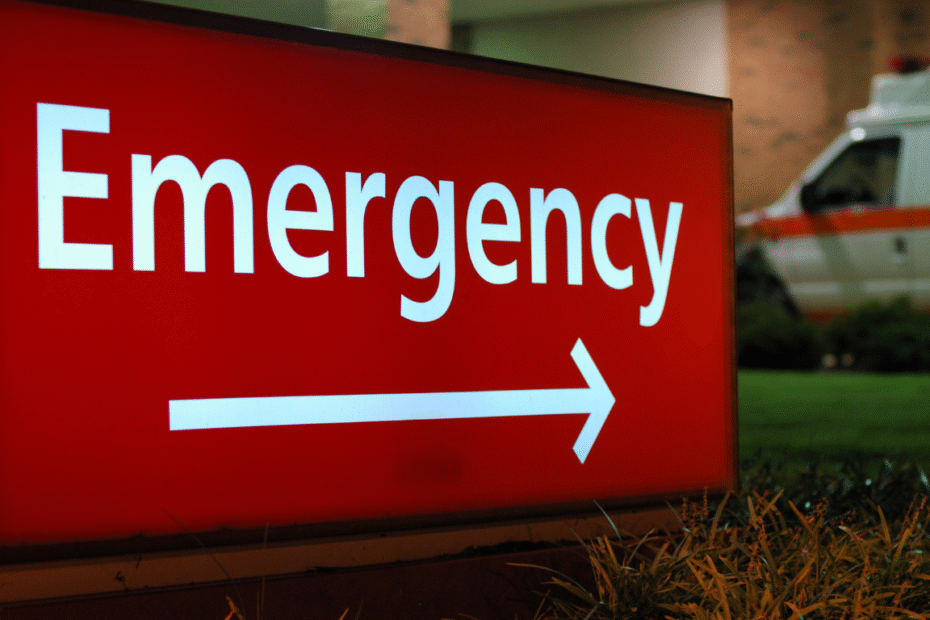Medical Emergencies in Japan: What Every Traveler Should Know
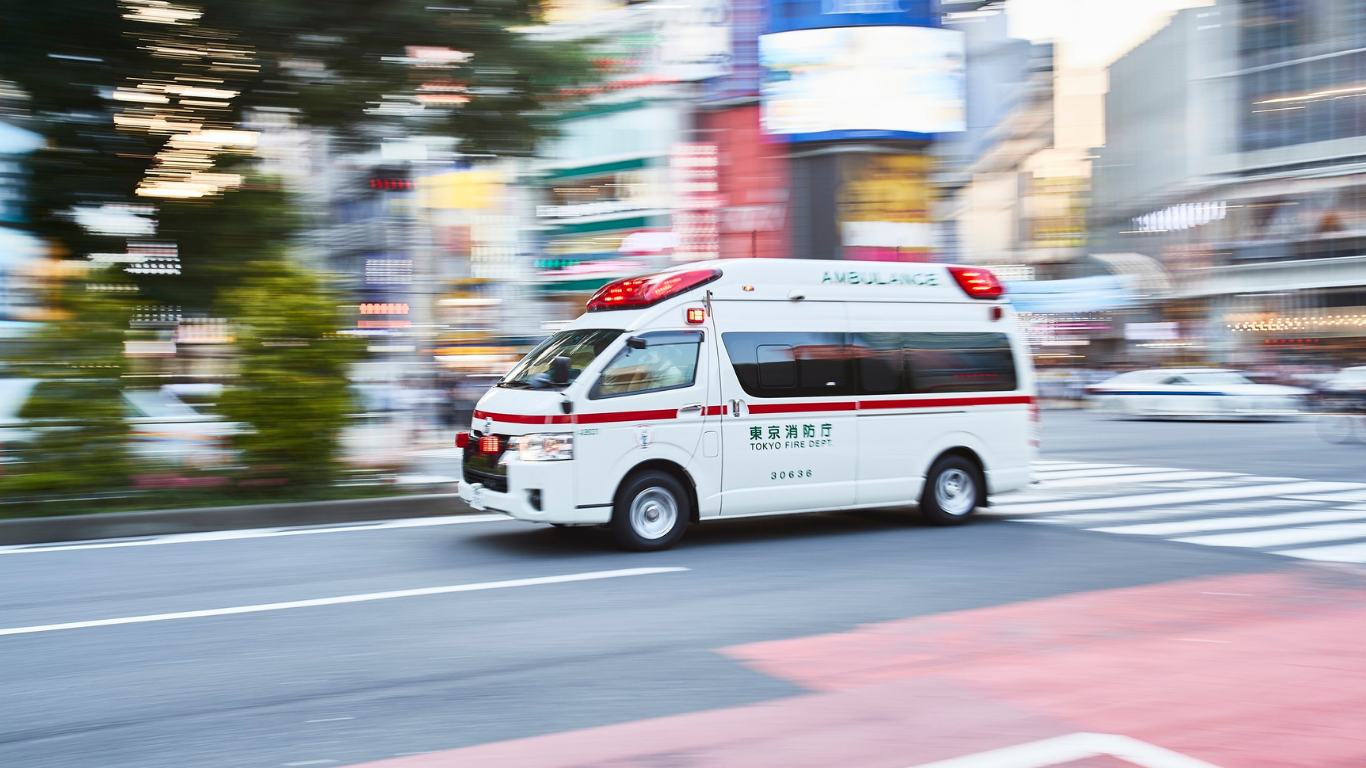
1. Travel with international health insurance
Medical care in Japan is world-class but very expensive for tourists. A consultation at a large hospital can easily exceed ¥10,000–¥20,000 (70–140 USD), and hospitalization or surgery may cost hundreds or even thousands of dollars.
That is why traveling with international health insurance is highly recommended. Many policies cover accidents, medical emergencies, and even repatriation.
Practical tip:
- Before traveling, make sure your policy covers Japan and includes a 24/7 assistance hotline.
- Keep both printed and digital copies of your insurance (on your phone).
2. Access to medicines and pharmacies
- Common medicines: Over-the-counter pain relievers, cold remedies, antihistamines, and muscle patches are widely available at pharmacies or drugstores.
- Strong medicines (antibiotics, anti-anxiety medication, opioids): require a Japanese doctor’s prescription.
- Pharmacies often do not stock the stronger versions that travelers might be used to at home.
Practical tip:
If you rely on specific medication, bring your own supply and prescription from your country, as finding equivalents in Japan can be difficult.
3. Hospitals and 24-hour care
In major cities (Tokyo, Osaka, Kyoto, Fukuoka, Sapporo, etc.), large general hospitals are available and accept emergency cases 24/7. Some have English-speaking staff, though this is not always guaranteed.
Practical tip:
- If staying long-term, identify the nearest hospital to your hotel or accommodation upon arrival.
- Tourist information centers or your hotel staff can recommend hospitals with English-speaking services.
4. Calling an ambulance in Japan
- Emergency number: 119 (same number for both fire and ambulance services).
- Cost: Ambulance service is free of charge, even for tourists. However, medical treatment costs at the hospital must be paid by the patient.
Example call:
If you cannot speak Japanese, in some larger cities operators may understand English. You can say:
“Ambulance, please. Emergency. Location: [your address or landmark]. A person is [describe situation].”
In simple Japanese (for urgent use):
“Kyūkyūsha onegaishimasu. Jūsho wa [your address]. Hito ga [basic problem, e.g. taoreta = collapsed].”
Why insurance matters: Medical costs in Japan can easily reach hundreds or even thousands of dollars for a single hospital visit or emergency procedure. Having international travel insurance ensures you are protected against unexpected medical bills, accidents, and even repatriation if needed. For peace of mind during your trip, we recommend securing coverage before you arrive in Japan.
EktaTraveling – Travel Insurance
EktaTraveling offers international travel insurance covering medical emergencies, accidents, and unexpected trip issues. Ideal for visitors in Japan who want peace of mind knowing 24/7 assistance is available during their journey.

Police and Safety Emergencies in Japan
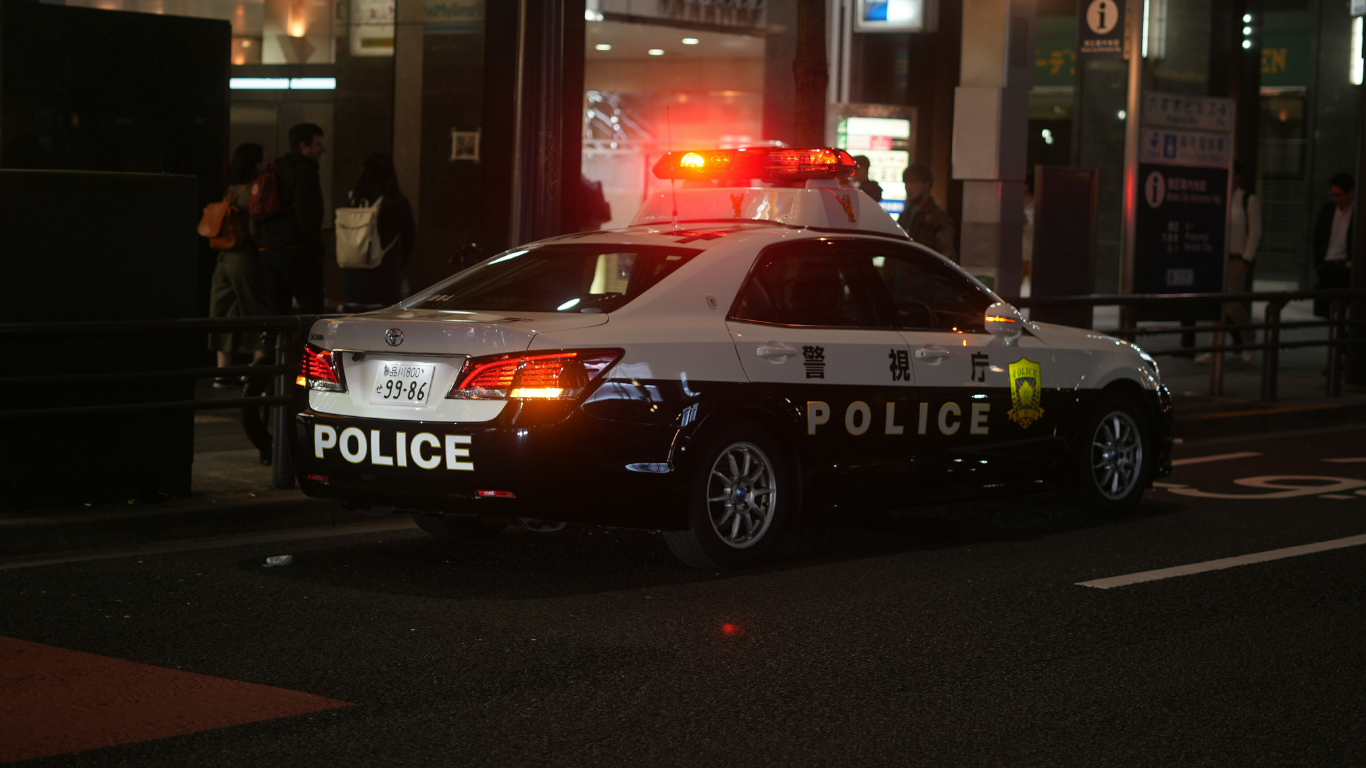
1. Why this matters
Japan is one of the safest countries in the world, with very low crime rates compared to most nations. Still, emergencies can happen—lost items, theft, harassment, accidents, or simply needing directions in an unfamiliar neighborhood. Knowing how to contact the police and where to find them can make your trip much smoother and safer.
2. Police emergency number
- Dial 110 only for urgent police emergencies.
- This number is for situations where there is an immediate threat to safety or a crime in progress, such as:
- Assault or harassment in public.
- A traffic accident.
- Serious theft or robbery where you feel unsafe.
The operator will ask for two essential details:
- What happened (e.g., traffic accident, assault, robbery, or another urgent situation).
- Where you are (address, nearest station, or a clear landmark).
💡 Important: If you lost a wallet, phone, or personal belongings without danger involved, do not call 110. Instead, go to the nearest kōban (交番, police box) or station office, where lost and found is handled.
Example in English:
“This is an emergency. I am at [location]. There has been [traffic accident / assault / robbery]. Please send help.”
Example in simple Japanese:
“Keisatsu onegaishimasu. Jūsho wa [your address or station]. Jiken wa [jiko = traffic accident / kōgeki = assault / dorobō = robbery].”
3. Kōban (Police Boxes)
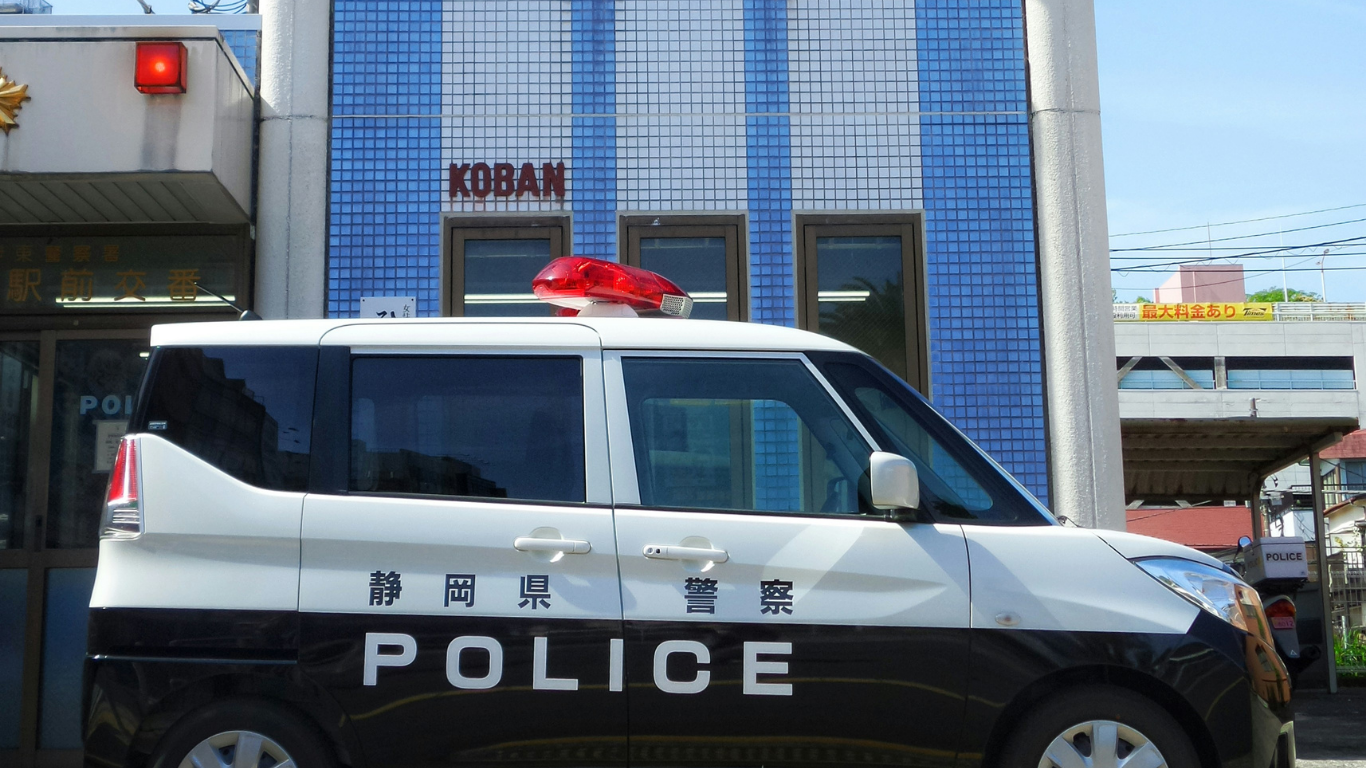
Japan has thousands of small neighborhood police stations called kōban (交番). These are usually located in busy areas like:
- Major train and subway stations.
- Shopping districts.
- City centers and residential neighborhoods.
What kōban are useful for:
- Reporting lost property (phones, passports, wallets).
- Asking for help if you are lost or need directions.
- Reporting minor incidents or disturbances.
Practical tip: Many officers in kōban may not speak fluent English, but they are very experienced in handling tourist cases. Use simple English, show your passport, or write down your issue.
4. Embassy emergency contacts
Even though Japan is safe, every traveler should keep their embassy’s 24/7 emergency contact number. Embassies can assist with:
- Replacing lost or stolen passports.
- Contacting family in case of emergencies.
- Providing legal support if you encounter serious issues.
Practical tip:
- Store your embassy’s phone number in your mobile contacts.
- Keep a printed note of it inside your passport cover in case your phone is lost.
- Some embassies also have apps or websites with quick “Emergency Assistance” buttons.
5. Extra safety tips
- Japan’s public order means pickpocketing is very rare, but crowded trains or tourist spots can still present risks.
- If you lose something (especially in trains, stations, or taxis), report it immediately to the nearest kōban or station office. Lost items are often recovered and returned in Japan.
- Always carry your passport, as police may ask for ID. Foreign visitors are legally required to carry it at all times.
Lost and Found in Japan: How to Recover Your Belongings
1. A culture of honesty
One of the most remarkable aspects of Japan is the strong culture of returning lost items. Whether it’s a wallet, smartphone, or important documents, locals will often take the item to the nearest police box (kōban) or customer service counter without touching the contents. Even cash is frequently returned intact.
2. First step: Go to a kōban (police box)
If you lose something valuable—passport, wallet, or phone—the nearest kōban should be your first stop.
- Provide details: description of the item, place where you may have lost it, and the approximate time.
- If the item is turned in, the police will contact you.
- You will need your passport for identification when retrieving the item.
3. Lost items in trains, stations, and taxis
Japan’s major transport companies have dedicated Lost & Found departments. If you left something on a train, subway, or taxi:
- Remember the company name (JR East, JR West, Tokyo Metro, Keio, etc.) and, if possible, the line you used.
- Try to note the approximate departure time and station. Even if you don’t know the exact train car, this information is usually enough for staff to trace your journey.
- For taxis, always ask for a receipt when you ride—it contains the taxi company and vehicle number, making it much easier to locate your belongings if something is left behind.
Most companies hold lost items for a period of time and cooperate with the police. Many tourists are pleasantly surprised to find that even expensive cameras or laptops are often returned safely.
4. Lost items in shops and malls
Large department stores, supermarkets, and shopping malls also operate Lost & Found counters, usually at the customer service desk.
- Simply ask: “Lost and Found?” or in Japanese: 「落とし物はありますか?」 (otoshimono wa arimasu ka?).
- Provide a short description and your contact information.
5. Important note for travelers
- Keep a record of your passport number, credit card numbers, and emergency contacts in a separate place (or digitally secured).
- If you lose your passport, report it to the police first, then contact your embassy immediately to begin the replacement process.
- Patience is key: many items are returned within hours or days.
6. Why this works in Japan
Respect for others’ property is deeply rooted in Japanese culture. Returning lost items is seen not only as a civic duty but also as a reflection of integrity. This system works equally well for citizens and tourists, making Japan one of the most reassuring countries in the world when it comes to lost belongings.
Emergency Numbers in Japan
🚓 Police
110 – Call this number to report theft, accidents, lost items, or any incident requiring police assistance.
🚑 Ambulance & 🚒 Fire Department
119 – Use this number to request an ambulance or to report a fire. Ambulance service is free of charge, even for tourists, though medical treatment at the hospital must be paid separately.
📞 Multilingual Consultation Service
Japan Visitor Hotline (JNTO): +81-50-3816-2787
Available 24/7 in English, Chinese, Korean, and Japanese. They can assist with accidents, illness, natural disasters, and general tourism inquiries.
💡 Tips
- When calling, state your location (address, nearest station, or landmark) clearly.
- If you cannot speak Japanese, use simple English; operators in big cities may transfer you to someone who understands.
- Keep these numbers saved in your phone and also written down in case your phone battery dies.
Staying Safe: Weather, Climate, and Daily Awareness in Japan
Even though Japan is one of the safest countries in the world in terms of crime, many tourist accidents are related to weather conditions and lack of preparation. Staying informed and cautious can make a big difference.
Stay informed daily
- Check news sites and local updates in English or use the translation feature on your device.
- Reliable sources: NHK World, Yahoo Japan, Japan Meteorological Agency.
- Pay attention to alerts about typhoons, earthquakes, heavy rains, or transport disruptions.
Climate awareness
- Microclimates: Weather can change quickly depending on the area. It may be sunny in Tokyo but rainy in the mountains or coastal regions. Always check the forecast for both your starting point and destination.
- Summer heat (熱中症 netsushō = heatstroke): Stay hydrated, rest in the shade or indoors, and wear light clothing. Heatstroke is one of the most common health emergencies for tourists in Japan.
- Winter cold & snow: Even if the day feels mild, temperatures can drop sharply at night. Wear layered clothing. After snowfalls, streets and sidewalks can become slippery—walk on sunlit areas when possible to avoid icy spots.
- Rain & typhoons: Carry a compact umbrella or raincoat. During heavy rainfall, drainage systems may overflow, making it difficult to walk safely in some areas. Avoid unnecessary travel during typhoon warnings.
- Thunderstorms & strong winds: Stay indoors when lightning strikes or when wind warnings are issued. Train and flight services may also be suspended—check updates before leaving.
General advice
Adjust your travel plans if authorities issue warnings—safety should come before sightseeing.
Always prepare for seasonal risks: heat in summer, snow/ice in winter, and heavy rains during the rainy season and typhoon season.
Earthquake & Tsunami Alerts (don’t ignore the beeps)
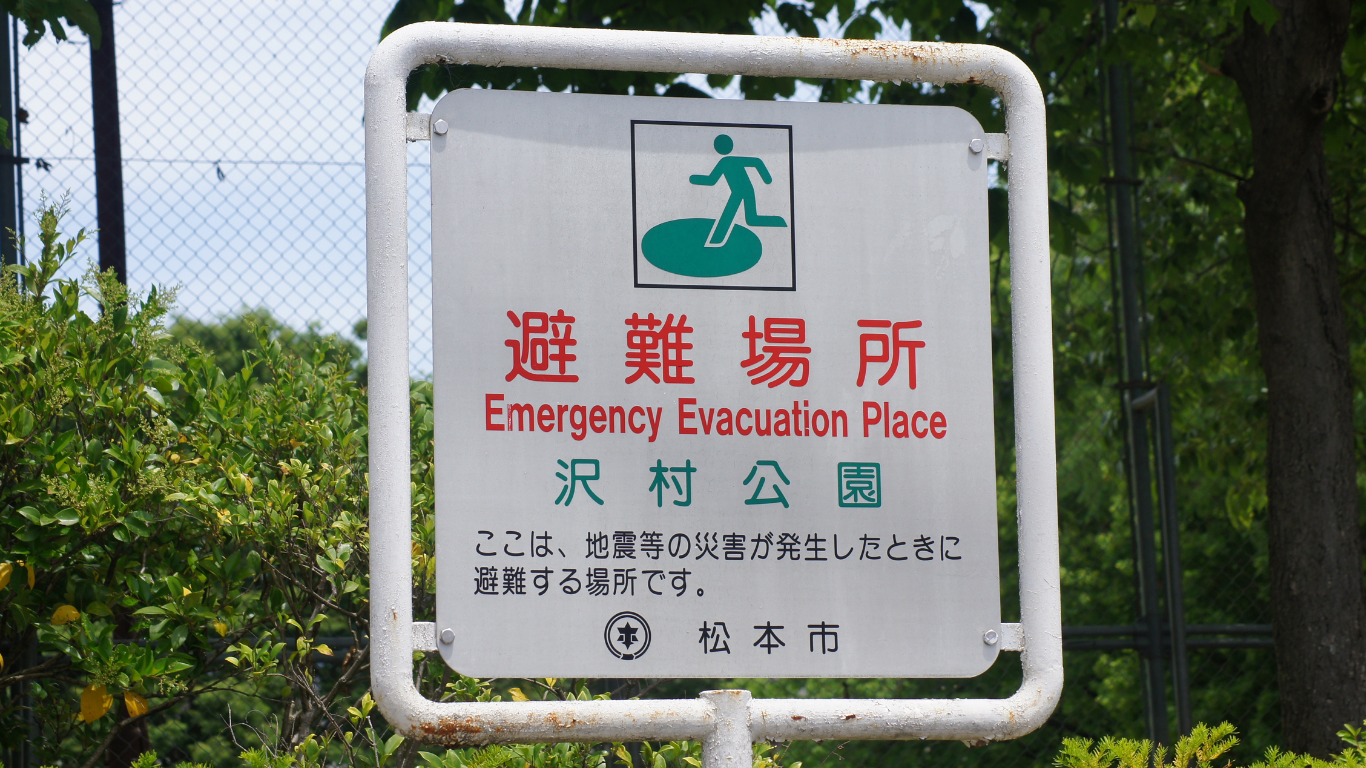
Japan has a nationwide warning system. Alerts can come through smartphones, TV/radio, and city loudspeakers (public address). You’ll usually hear a distinct chime/beep first, followed by a Japanese announcement. If you don’t understand it, ask someone nearby or use these phrases:
- “I don’t understand the announcement. Can you help me?”
Japanese: 「アナウンスが分かりません。助けてください。」(Anaunsu ga wakarimasen. Tasukete kudasai.) - “Where is the evacuation area?”
Japanese: 「避難場所はどこですか?」(Hinan-basho wa doko desu ka?)
If an earthquake alert sounds or shaking starts:
- Indoors: Drop, Cover, Hold On. Protect your head, stay away from glass and tall furniture. Don’t use elevators. After shaking stops, put on shoes and follow staff instructions.
- On trains/metro: Trains may brake suddenly and stop. Stay seated/hold the handrail, wait for staff guidance. If you’re on a platform, step well back from the edge.
- Outdoors: Move away from walls, signs, and power lines. Watch for falling objects.
- In a car: Pull over safely, stay inside until shaking stops, listen to the radio.
Tsunami risk (coastal areas):
- After strong or long shaking near the coast, move immediately to higher ground or inland—don’t wait for official confirmation.
- Follow blue/green “Tsunami Evacuation Route / 津波避難” signs and arrows. Avoid riverbanks and bridges; water can surge upstream.
- Do not go back to the shoreline to take photos; multiple waves can arrive over hours.
Useful sources for multilingual alerts:
- NHK World (news & push alerts)
- Japan Meteorological Agency (JMA) (official warnings & maps)
- Safety Tips app (Japan Tourism Agency; multilingual earthquake/tsunami/typhoon alerts)
Quick checklist:
- Keep a small kit: phone battery, water, snacks, meds, copy of ID, some cash.
- Learn the nearest evacuation spot (避難所 / 避難場所) at your hotel/hostel.
- If you hear the beep–announcement sequence from city speakers, pause and look around—locals will move; follow them and ask if unsure.
It’s important to stress that these situations are not common—they are extreme cases. However, the goal is for every traveler to be 100% prepared. Japan’s government is also very well organized for such scenarios, with official evacuation plans and clearly marked evacuation maps available in every city, town, and district. You can also check the official MLIT Disaster Prevention Portal for detailed hazard maps, shelters, and updates: mlit.go.jp
🌐 Japan Meteorological Agency (JMA)
The Japan Meteorological Agency (JMA / 気象庁) is Japan’s official authority for typhoon forecasts, tsunami warnings, earthquake alerts, and volcanic activity updates.
Why it matters:
– Issues typhoon advisories every 3–6 hours with real-time track, strength (hPa), and expected impact zones.
– Sends Earthquake Early Warnings (緊急地震速報) and Tsunami Warnings (津波警報) that appear on TV, radio, and mobile apps.
– Provides an interactive live hazard map for heavy rain, storm surge, and local municipal alerts.
🔗 Official JMA website (English/Japanese): https://www.jma.go.jp/
👉 Tip: bookmark JMA’s site and enable notifications in local apps (NHK World, Yahoo Bōsai Sokuhō) to get instant alerts during typhoons or earthquakes.
A Positive Note to Close
Don’t let these emergency tips discourage you from visiting Japan. On the contrary—they are here to make your journey safer and more enjoyable. If you keep these points in mind, you’ll be able to travel with peace of mind, knowing you’re ready for anything.
This is the kind of advice you won’t often find in a typical travel blog: not just the highlights and attractions, but also the knowledge that helps you travel fully prepared. Japan is waiting for you—safe, welcoming, and unforgettable.
